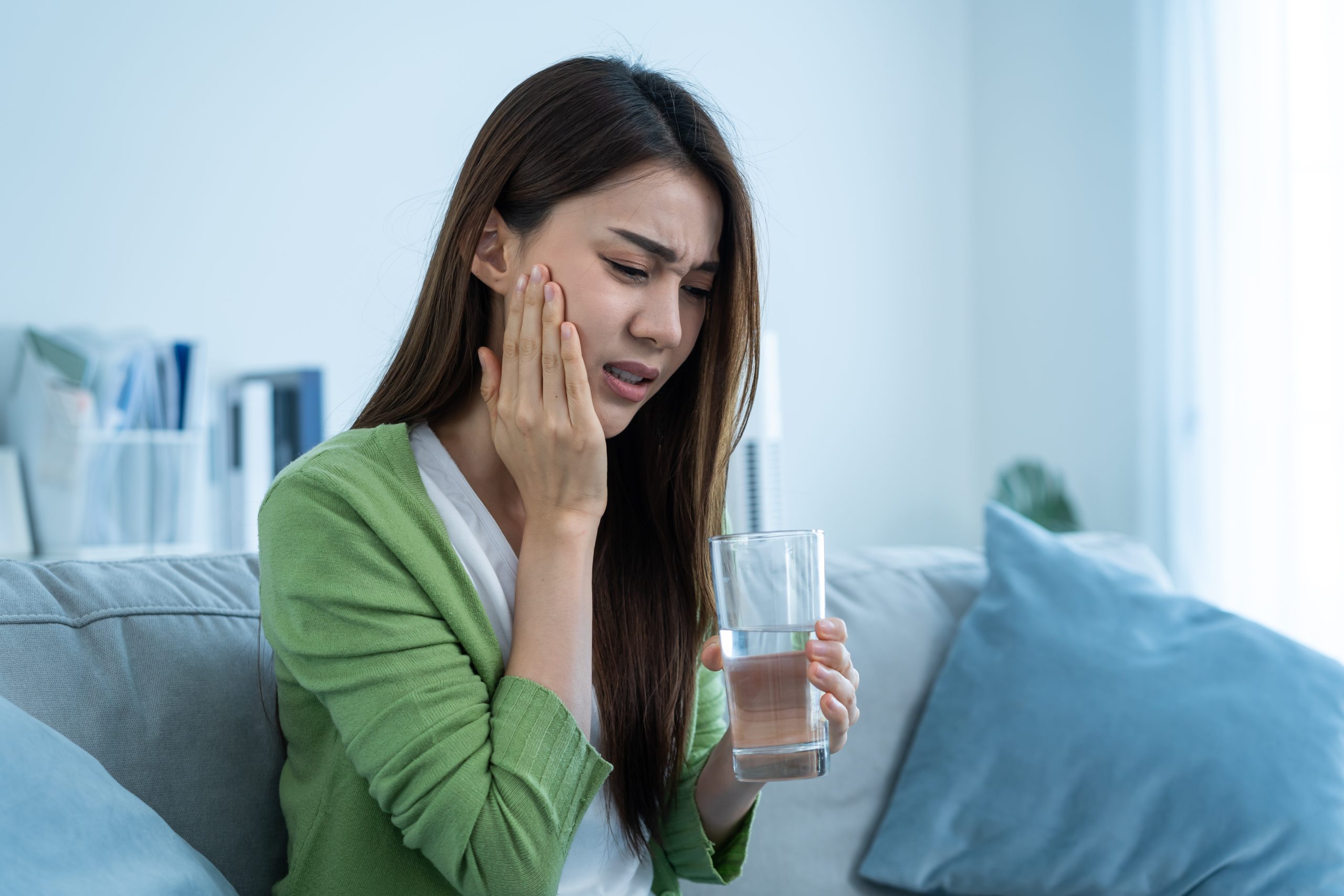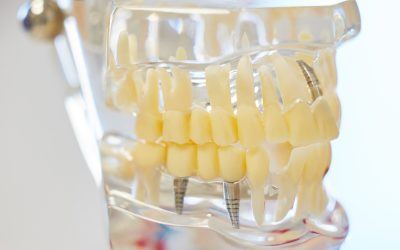Overview: Teeth Sensitivity
Teeth sensitivity (or dentin hypersensitivity) is a common dental condition characterised by a sharp discomfort, odd sensation, or temporary pain affecting one or more teeth.
The sensitivity usually happens when there is exposure to certain stimuli, such as eating/drinking hot, acidic, sweet, or cold liquids or foods. Exposure to cold air or activities like brushing and flossing can also trigger sensitivity.
While there are many underlying causes, our focus below will be on dentin hypersensitivity after dental fillings. Let’s get right into it.
Is It Normal to Have Tooth Sensitivity Months After Filling?
NO! If you experience teeth sensitivity months after a dental filling procedure, see your dentist immediately. In some situations, for example, when the sensitivity is occasional and manageable, your dentist may observe and decide not to interfere with the tooth filling.
In other cases with persistent sensitivity, your dentist may decide to offer root canal treatment. While it’s possible to wait it out and see if the sensitivity will go away on its own (avoiding a root canal in the process), the decision should be left to your dentist after a dental appointment.
How Long Are Teeth Sensitive After Filling?
Generally, teeth tend to be sensitive for up to 2 weeks after a dental filling procedure. If the sensitivity persists, you should visit your dentist and let them decide whether the sensitivity is normal, how long you’ll experience it, and if you need treatment.
Does A Filling Hurt Afterwards?
After a dental tooth filling procedure, the resulting tooth sensitivity may be accompanied by pain. Nevertheless, you shouldn’t be worried about tooth pain that lasts for a week or so. If longer, visit a dentist immediately.
In many cases, some slight pain may be felt if a filling needs to be adjusted to match your bite perfectly. Filings that are too high are prone to this problem. A simple adjustment can alleviate the pain and discomfort immediately.
If the pain is unprovoked, meaning it comes by itself and isn’t due to bite misalignment, see your dentist immediately. The same applies to pain accompanied by sensitivity due to hot/cold food particles and/or chewing.
If possible, you can try to tolerate the pain for several days to weeks to see if it goes away. If it persists and/or gets worse, book an appointment with your dentist.
How to Relieve Tooth Pain After Filling?
If you’re looking for a home remedy to relieve tooth pain after a dental filling, you can take pain medication (like Advil and Tylenol). Advil is a nonsteroidal anti-inflammatory drug that can reduce inflammation; both of these medications are good tooth pain relievers. Additionally, Tylenol is a perfect alternative for those who can’t take anti-inflammatory drugs like Advil.
If you take the above tooth pain medication and the pain persists, see a dentist. While the medication can take a day or so to be fully effective, pain that persists after two days should warrant a visit to your dentist.
Why Does My Jaw Hurt After a Filling?
Besides tooth pain and sensitivity, you may experience some pain in your jaw after a filling. This is usually caused by opening your mouth for a prolonged period during a dental filling procedure. In some cases, your jaw may already have a problem, and keeping your mouth open for a long time worsens it.
There’s usually no direct link between jaw pain and tooth filing. If the jaw pain is linked to opening your mouth over extended periods, the pain should go away after a few days. Remedies like wearing a night guard can make the pain bearable. The same applies to relaxing your jaw by avoiding chewy and hard foods.
If you don’t get any relief after 3 to 7 days, visit your dentist.
Is It Normal to Have Sensitive Gums After Filling? Why Does It Happen?
NO! Your gums shouldn’t be sensitive after a filing. Visit your dentist immediately to inspect your gums. The pain may be due to many reasons (from injury to dental ailments like gum disease).
I Feel a Sharp Pain After Filling. Should I See a Doctor?
Absolutely! You shouldn’t ignore sharp or intense pain after a dental filling. Book a dental appointment right away, as you might need a root canal.
Why Do I Feel Temperature Sensitivity After a Filling?
This is quite normal after a filling. What’s more, it might last for a while. Temperature-linked tooth sensitivity may be an indication that the filling needs to be adjusted.
Different dental filling materials (like amalgam vs silver filling) have different properties, so it may take time getting used to them. If the filing isn’t perfectly done, cold/hot stimuli can reach the nerve faster than in a natural tooth structure.
Wrapping up
Dental fillings are usually done to treat tooth decay. The procedure may also be done to replace a broken filing. During the process, your dentist needs to remove the decay/bad tooth structure, which tends to cause sensitivity in the nerves of the tooth/teeth being treated.
However, the sensitivity shouldn’t be prolonged. Any sensitivity that lasts for months after a filing should be a cause for concern. This is especially true if medication isn’t making the sensitivity go away, alongside other common effects like dental pain. If that’s the case with you, visit a dentist immediately.
If you reside in Toronto, visit The Little Green Building for a comprehensive dental sensitivity exam. We are conveniently located near Bloor West (Google Maps).
You can call: 416-769-8135 or email: littlegreenbuilding@gmail.com to get tooth sensitivity treatment, replacement filling, or other routine procedures.
Get answers on unusual sensations, types of pulpitis (irreversible pulpitis and reversible pulpitis), extra pressure, reasons for constant pressure in your dental formula, treatment for nerve irritation, other additional treatment, and explanations for pain, even considering allergic reactions to silver fillings.





